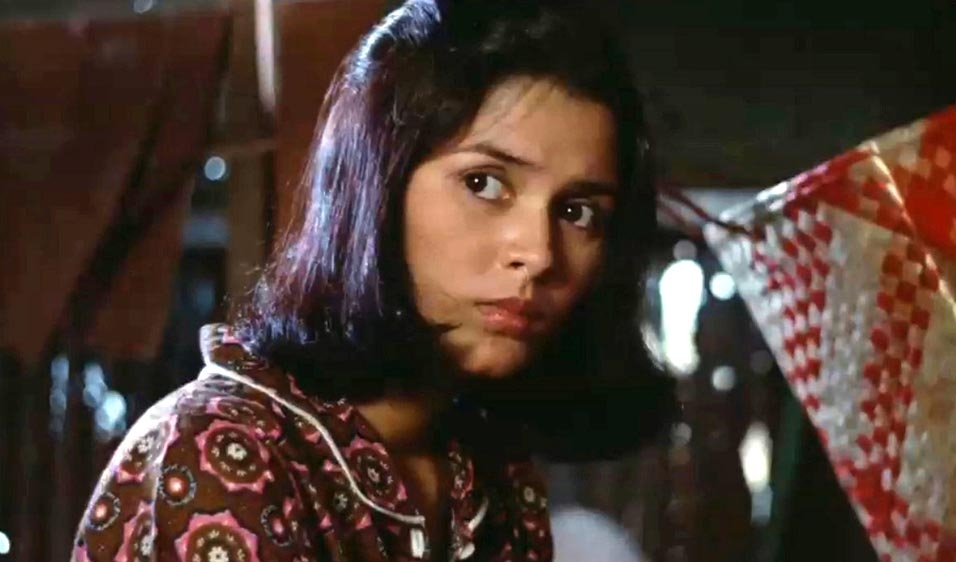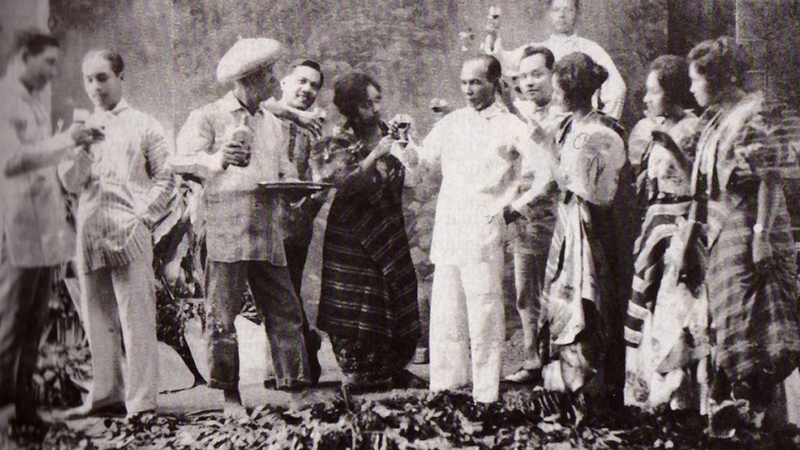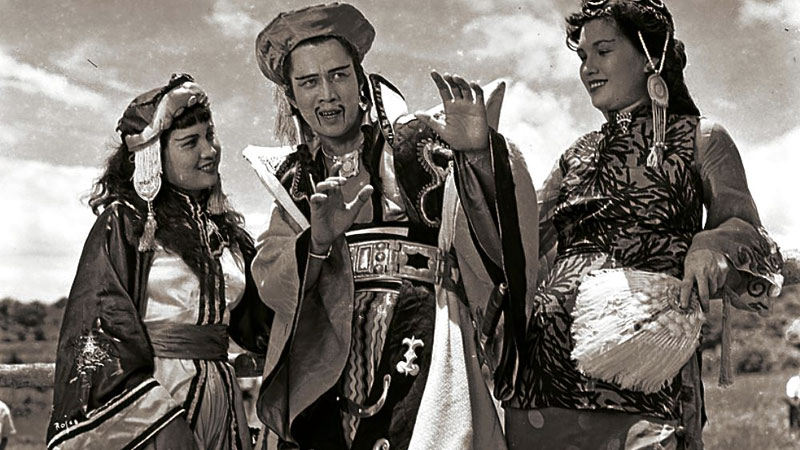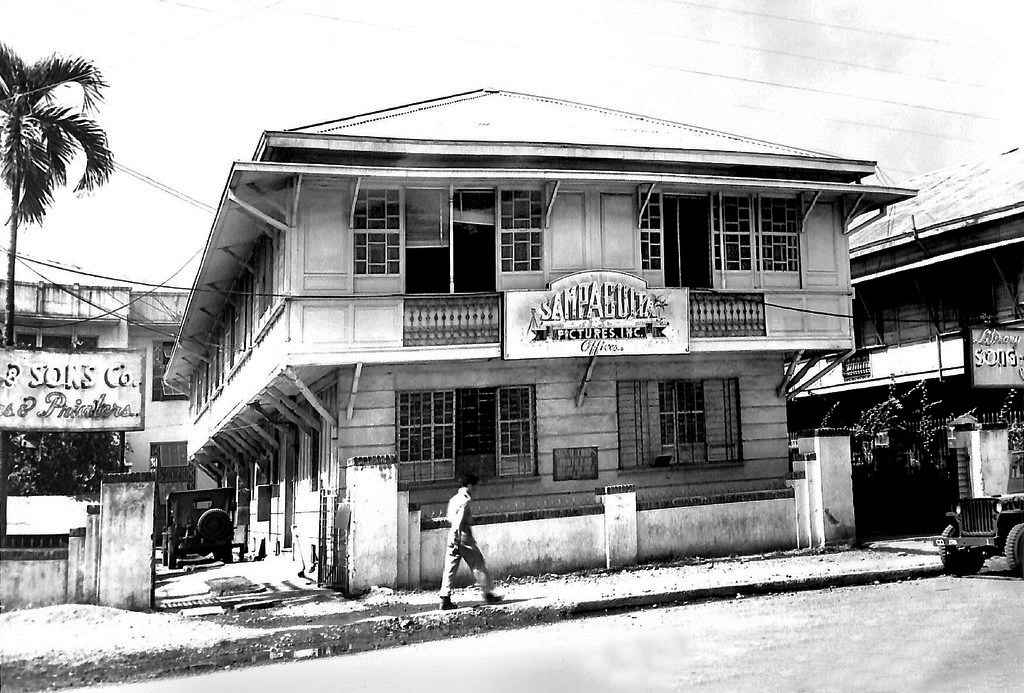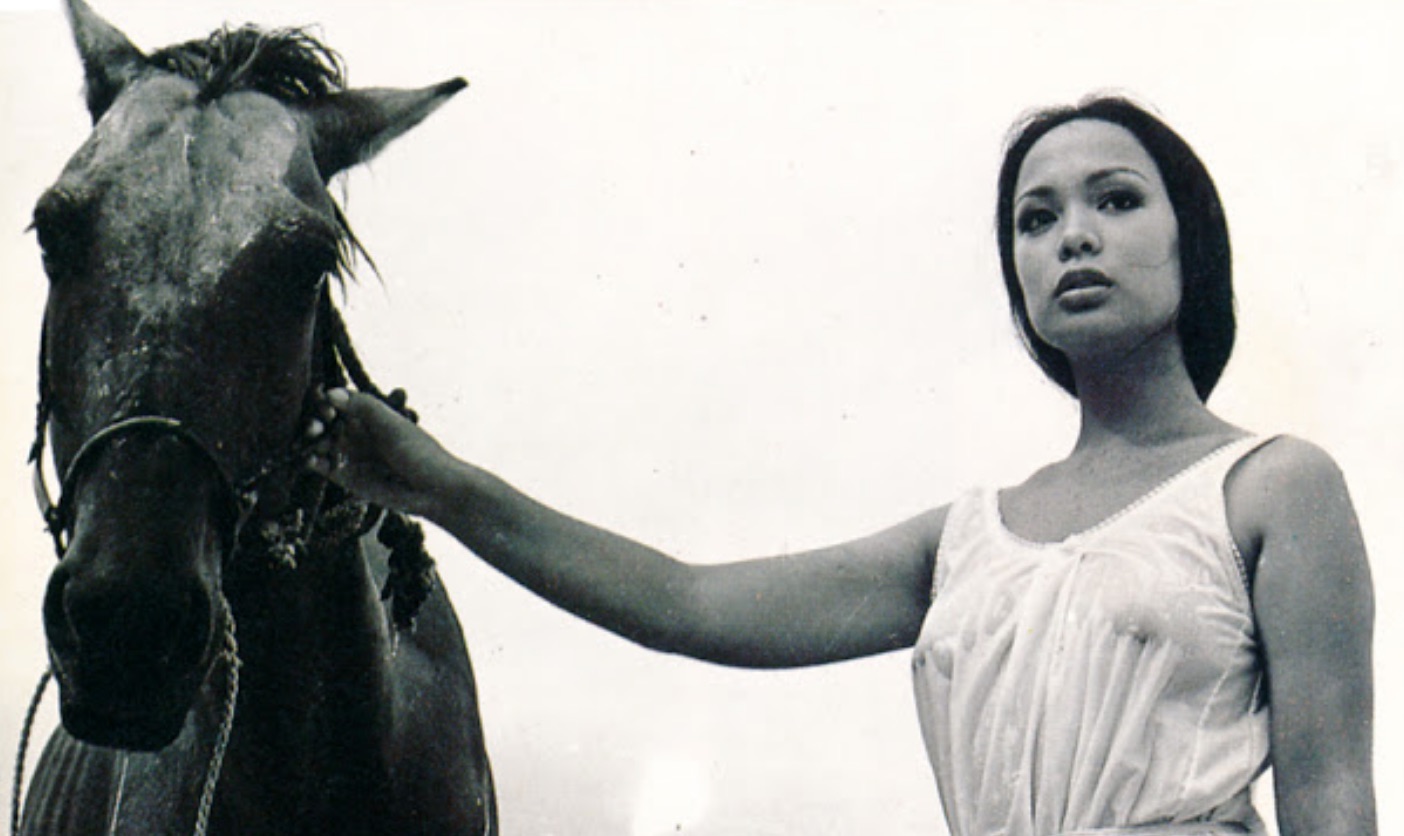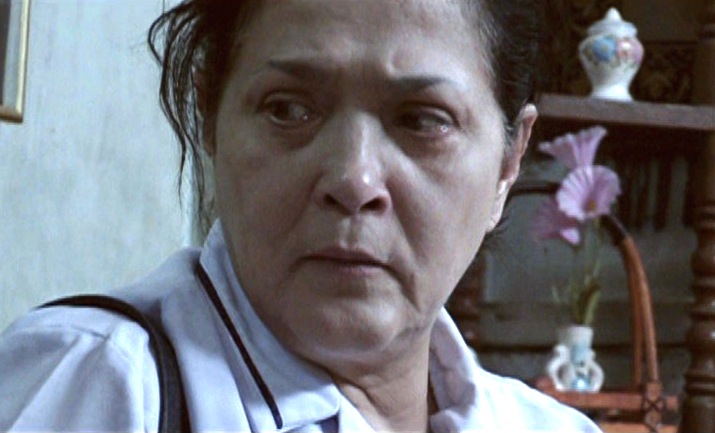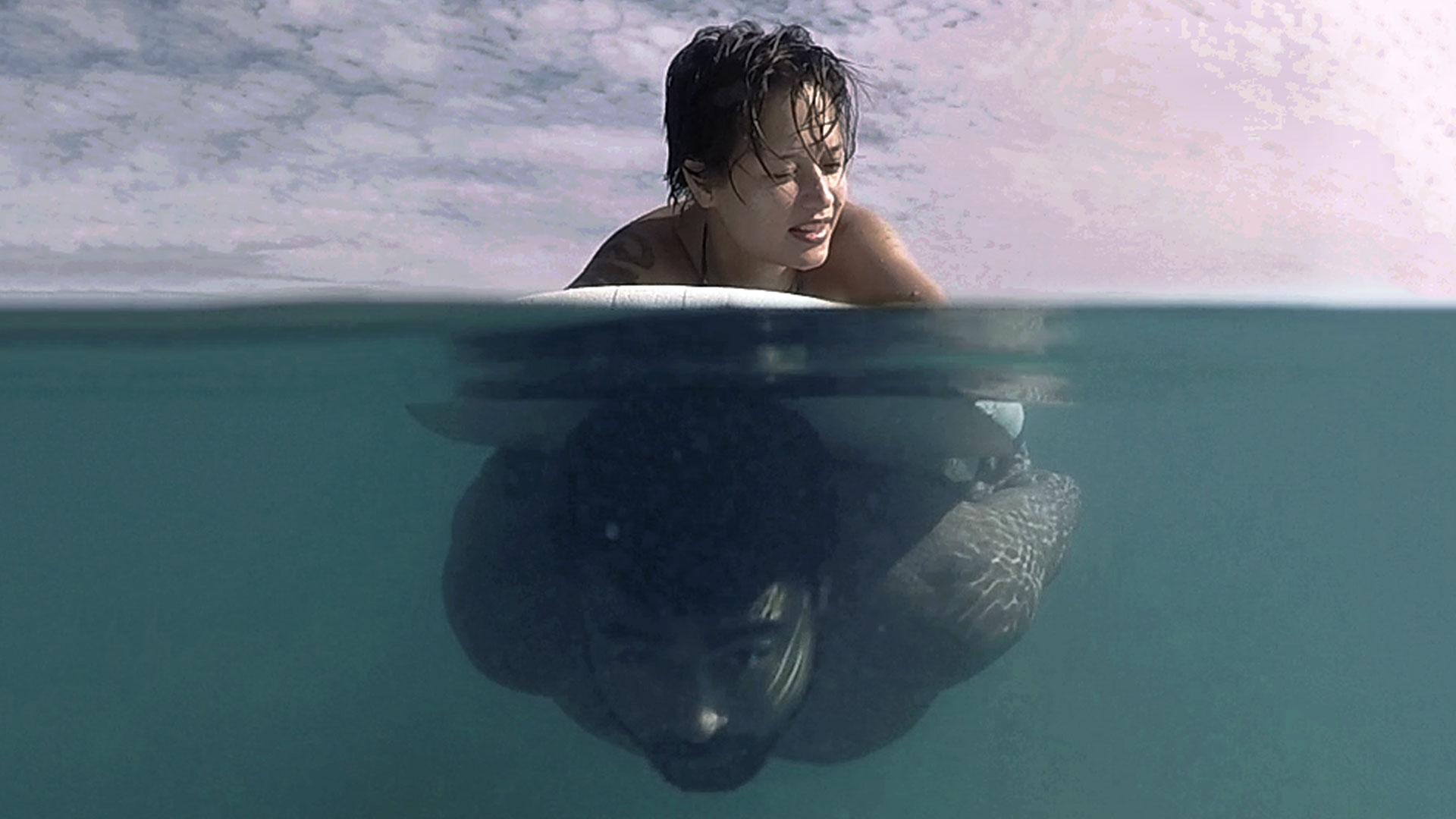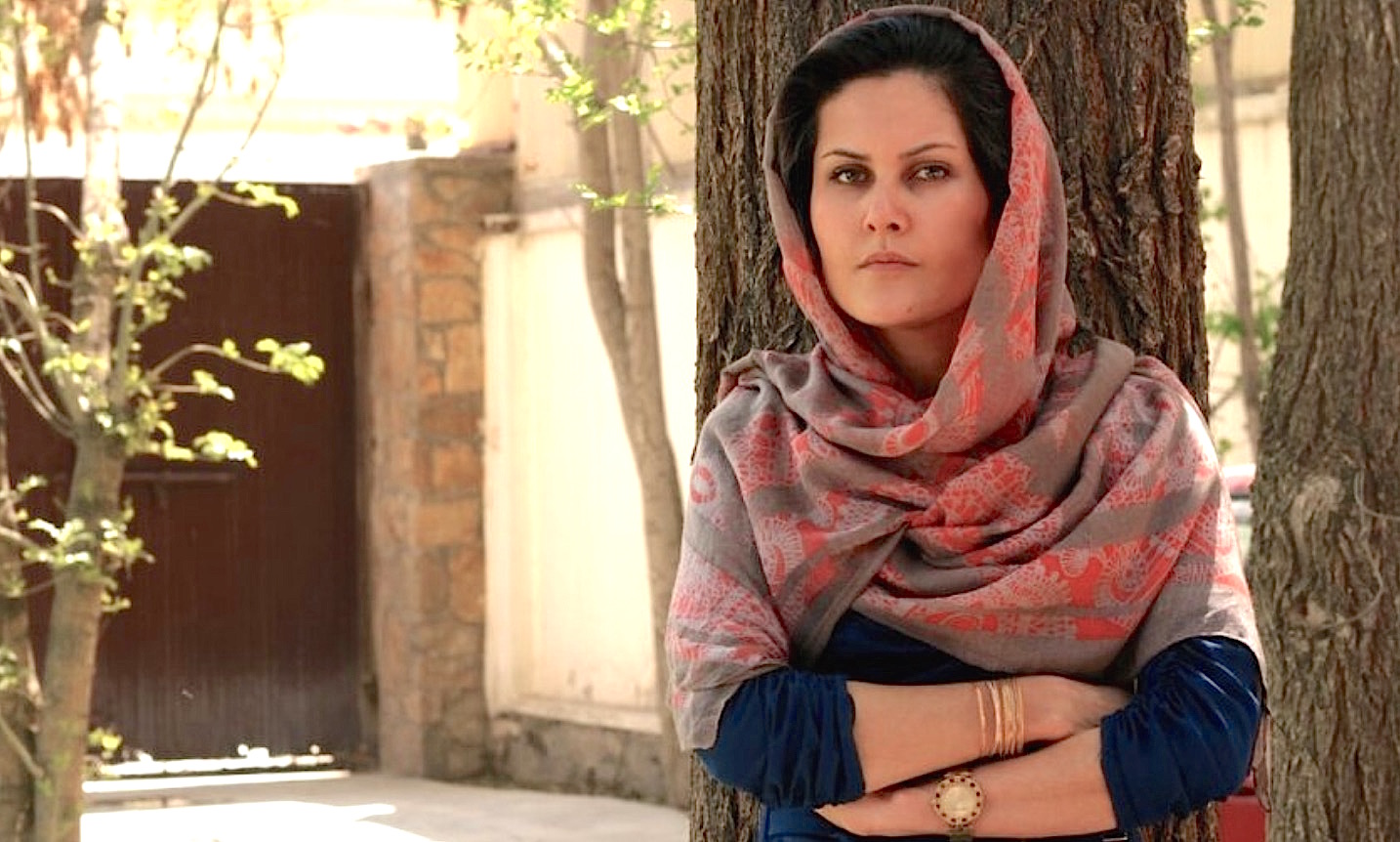LOST ILLUSION, ANNETTE LEAD WINNERS AT 47TH CESAR AWARDS
 Sunday, February 27, 2022 at 11:50AM
Sunday, February 27, 2022 at 11:50AM
The 47th Cesar Awards have favoured the handsomely-mounted period drama Lost Illusions in its annual award ceremony at the Olympia Theatre in Paris on Friday night, in an event that respected global tensions and tempered the usual boisterous outpourings.

Xavier Giannoli’s adaptation of the classic Honoré de Balzac novel led the nomination pack with an impressive 15 nods, ultimately scoring trophies in seven categories, including Film, Cinematography, Supporting Actor (for Vincent Lacoste) and Male Newcomer (Benjamin Voisin; pictured, above). Giannoli was pipped in the Best Director category by Leos Carax for his Cannes Film Festival opener, Annette, a divisive artistic work that nevertheless won five Cesars, including visual effects and score.
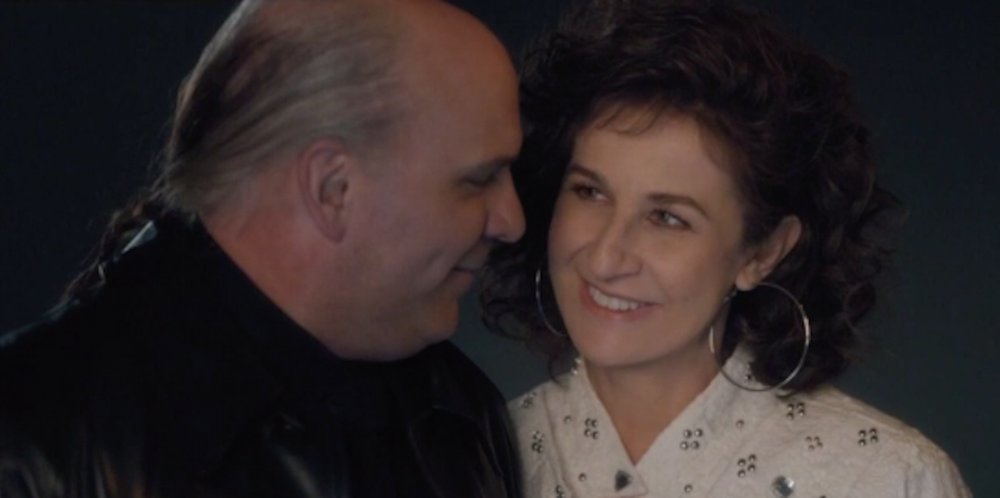 Key categories were divided between a cluster of titles, including Aline (Best Actress for Valerie Lemercier; pictured, right); Living (Best Actor for Benoit Magimel); La fracture (Supporting Actress for Aissatou Diallo Sagna); and, Happening (Best Female Newcomer, Anamaria Vartolomei). Shut out of the awards roster were such high profile titles as Julia Ducornau’s Palme d’Or winner Titane; Paul Verhoeven’s incendiary satire Benedetta; and Bruno Dumont's journalist drama, France.
Key categories were divided between a cluster of titles, including Aline (Best Actress for Valerie Lemercier; pictured, right); Living (Best Actor for Benoit Magimel); La fracture (Supporting Actress for Aissatou Diallo Sagna); and, Happening (Best Female Newcomer, Anamaria Vartolomei). Shut out of the awards roster were such high profile titles as Julia Ducornau’s Palme d’Or winner Titane; Paul Verhoeven’s incendiary satire Benedetta; and Bruno Dumont's journalist drama, France.
Australian actress Cate Blanchett was honoured with a special Cesar Award, presented to her by France’s own acting great, Isabelle Huppert. Blanchett spoke briefly in French, then English, acknowledging the prestigious award before putting the evening into perspective, saying, it was “difficult to think or speak about anything other than what's happening in Ukraine.”
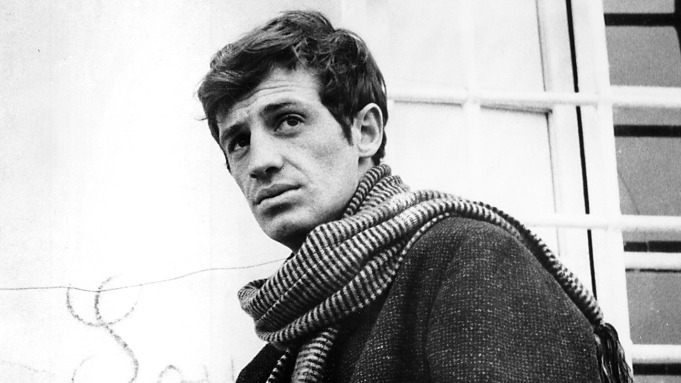 The night was also one of sombre reflection for the French industry. Xavier Dolan read a letter he had written about his close friend, the late actor Gaspard Ulliel, co-star of his 2016 movie, It’s Only the End of the World. Dolan addressed it to his grieving family, saying that “a mother’s love is more powerful than anything, stronger than life, than art even, and surely stronger than death.” Also honoured was iconic actor Jean-Paul Belmondo (pictured, left), the star of New wave classics Breathless and Pierrot le fou, who died in September at the age of 88.
The night was also one of sombre reflection for the French industry. Xavier Dolan read a letter he had written about his close friend, the late actor Gaspard Ulliel, co-star of his 2016 movie, It’s Only the End of the World. Dolan addressed it to his grieving family, saying that “a mother’s love is more powerful than anything, stronger than life, than art even, and surely stronger than death.” Also honoured was iconic actor Jean-Paul Belmondo (pictured, left), the star of New wave classics Breathless and Pierrot le fou, who died in September at the age of 88.
The full list of the 47th Cesar Award winners:
Best Film: LOST ILLUSIONS, Xavier Giannoli, produced by Olivier Delbosc, Sidonie Dumas
ALINE Valerie Lemercier, produced by Edouard Weil, Alice Girard, Sidonie Dumas
ANNETTE Leos Carax, produced by Charles Gillibert
BAC NORD, Cedric Jimenez, produced by Hugo Selignac
HAPPENING, Audrey Diwan, produced by Edouard Weil, Alice Girard
LA FRACTURE, Catherine Corsini, produced by Elisabeth Perez
ONODA, 10,000 NIGHTS IN THE JUNGLE, Arthur Harari, produced by Nicolas Anthome, Lionel Guedj
Best Director: Leos Carax, ANNETTE
Valerie Lemercier, ALINE; Audrey Diwan, HAPPENING; Xavier Giannoli, LOST ILLUSIONS; Arthur Harari, ONODA, 10,000 NIGHTS IN THE JUNGLE; Julia Ducournau, TITANE
Best Actress: Valerie Lemercier, ALINE
Leila Bekhti, THE RESTLESS; Valeria Bruni Tedeschi, LA FRACTURE; Laure Calamy, UNE FEMME DU MONDE; Virginie Efira, BENEDETA; Vicky Krieps, SERRE MOI FORT; Lea Seydoux, FRANCE
Best Actor: Benoit Magimel, LIVING
Damien Bonnard, THE RESTLESS; Adam Driver, ANNETTE; Gilles Lellouche, BAC NORD; Vincent Macaigne, MEDECIN DE NUIT; Pio Marmai, LA FRACTURE; Pierre Niney, BOITE NOIRE
Best Cinematography: Christophe Beaucarne, LOST ILLUSIONS
Caroline Champetier, ANNETTE; Paul Guilhaume, PARIS 13TH DISTRICT; Tom Harari, ONODA, 10,000 NIGHTS IN THE JUNGLE; Ruben Impens, TITANE
Best Supporting Actress: Aissatou Diallo Sagna, LA FRACTURE
Jeanne Balibar, LOST ILLUSIONS; Celine de France, LOST ILLUSIONS; Adele Exarchopoulos, MANDIBULES; Danielle Fichaud, ALINE
Best Supporting Actor: Vincent Lacoste, LOST ILLUSIONS
Francois Civil, BAC NORD; Xavier Dolan, LOST ILLUSIONS; Karin Leklou, BAC NORD; Sylvain Marcel, ALINE
Best Female Newcomer: Anamaria Vartolomei, HAPPENING
Noee Abita, SLALOM; Salome Dewaels, LOST ILLUSIONS; Agathe Rousselle, TITANE; Lucie Zhang, PARIS 13TH DISTRICT
Best Male Newcomer: Benjamin Voisin, LOST ILLUSIONS
Sandor Funtek, SUPREMES; Sami Outalbadi, “UNE HISTOIRE D'AMOUR ET DE DESIR; Thimothee Robart, MAGNETIC BEATS; Matika Samba, PARIS 13TH DISTRICT
Best First Film: MAGNETIC BEATS, Vincent Mael Cardona
GAGARINE, Fanny Liatard, Jeremy Trouilh; LA NUEE, Just Philippot; LA PANTHEREE DES NEIGES, Marie Amiguet, Vincent Munier; SLALOM, Charlene Favier
Best Foreign Film: THE FATHER, Florian Zeller
COMPARTMENT NO. 6, Juho Kuho Kuosmanen; DRIVE MY CAR, Ryusuke Hamaguchi; FIRST COW, Kelly Reichardt;THE WORST PERSON IN THE WORLD, Joachim Trier; PARALLEL MOTHERS, Pedro Almodovar
Best Original Screenplay: Arthur Harari, Vincent Poymiro, ONODA, 10,000 NIGHTS IN THE JUNGLE
Valerie Lemercier, Brigitte Buc, ALINE; Leos Carax, Ron Mael, Russel Mael, ANNETTE; Yann Gozlan, Simon Moutaïrou, Nicolas Bouvet-Levrard, BOITE NOIRE; Catherine Corsini, Laurette Polmanss, Agnes Feuvre, LA FRACTURE
Best Adapted Screenplay: Xavier Giannoli, Jacques Fieschi, LOST ILLUSIONS
Yael Langmann, Yvan Attal, “LES CHOSES HUMAINES; Audrey Diwan, Marcia Romano, HAPPENING; Celine Sciamma, Lea Mysius, Jacques Audiard, PARIS 13TH DISTRICT; Mathieu Amalric, SERRE MOI FORT
Best Animated Film: THE SUMMIT OF GODS, Patrick Imbert
EVEN MICE BELONG IN HEAVEN, Denisa Grimmova, Jan Bubenicek; LA TRAVERSEE, Florence Miailhe
Best Documentary: LA PANTHEREE DES NEIGES Marie Amiguet
ANIMAL, Cyril Dion; BIGGER THAN US, Flore Vasseur; DEBOUT LLES FEMMES! Gilles Perret, Francois Ruffin; INDES GALANTES!, Philippe Beziat
Best Original Score: Ron Mael, Russell Mael, ANNETTE
Guillaume Roussel, BAC NORD; Philippe Rombi, BOITE NOIRE; Rone, PARIS 13TH DISTRICT; Warren Ellis, Nick Cave, LA PANTHEREE DES NEIGES
Best Sound Editing: Erwan Kerzanet, Kaita Boutin, Mawence Dussere, Paul Haymans, Thomas Gauder, ANNETTE
Olivier Mauvezin, Arnaud Rolland, Edouard Morin, Daniel Sobrino, ALINE; Nicolas Provost, Nicolas Bouvet-Levrard, Marc Doisne, BOITE NOIRE; Francois Musy, Renaud Musy, Didier Lozahic, LOST ILLUSIONS; Mathieu Descamps, Pierre Bariaud, Samuel Aïchoun, MAGNETIC BEASTS
Best Editing: Nelly Quettier, ANNETTE
Simon Jacquet, BAC NORD; Fredric Baillehaiche, LA FRACTURE; Cyril Nakache, LOST ILLUSIONS
Best Costumes: Pierre-Jean Laroque, LOST ILLUSIONS
Catherine Leterrier, ALINE; Pascaline Chavanne, ANNETTE; Madeline Fontaine, DELICIEUX; Thierry Deletre, EIFFEL
Best Set Design: Riton Dupire-Clement, LOST ILLUSIONS
Emmanuelle Duplay, ALINE; Florian Sanson, ANNETTE; Bertrand Seitz, DELICIEUX; Stephane Taillasson, EIFFEL
Best Visual Effects: Guillaume Pondard, ANNETTE
Sebastien Rame, ALINE; Olivier Cauwet, EIFFEL; Arnaud Fouquet, Julien Meesters, LOST ILLUSIONS; Martial Vallanchon, TITANE
 Awards,
Awards,  Cesars,
Cesars,  French,
French,  International Cinema
International Cinema 